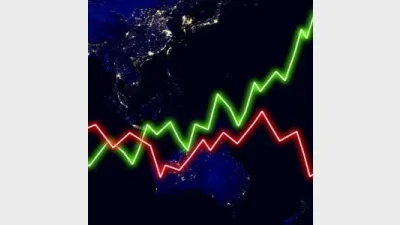Which stocks helped and hindered the Magellan Global fund?



Magellan fund managers have outlined which global stocks have helped and hindered its $9.4 billion Magellan Global fund over the last 12 months.
In an annual investor letter, Magellan Global fund managers, Arvid Streimann and Nikki Thomas, said the open class of the fund had lost 11.8% over the year to 30 June.
The main three detractors from performance were social media giant Meta, streaming service Netflix and Chinese tech platform Alibaba. These lost 1.9 percentage points, 2.3 percentage points and 2.7 percentage points respectively.
“Alibaba dropped after the Chinese tech company announced sales figures that disappointed and Chinese regulators cracked down on local technology companies. Netflix fell after the streaming service said it expected subscriber growth to slow and profit margins to narrow.
“Meta tumbled after the owner of Facebook offered weak revenue forecasts due to Apple privacy restrictions inhibiting the reach and effectiveness of online ads, its Facebook site suffered its first drop in regular users due to the popularity among the young of TikTok, and the company faced a public-relations blow and possible legal difficulties after a former employee exposed issues at the social-media company and that it was losing younger audiences.”
The fund had since exited its exposure to Alibaba and Netflix while Meta was a 2.1% holding, as of 30 June.
Conversely, performance was helped by consumer staples Procter and Gamble (0.5 percentage points), fast food chain McDonalds (0.5 percentage points) and PepsiCo (0.7 percentage points). McDonalds was the only one to feature in the fund’s top 10 holdings at 4.5%.
“PepsiCo gained after the drinks and snacks company raised its forecast for full-year earnings and announced profit and revenue numbers that beat expectations. McDonald’s too benefited from the ability of its franchisees to raise prices to absorb higher input costs. Procter & Gamble was another to enjoy the boost quality consumer staples received for their ability to protect margins in times of high inflation.”
Streimann and Thomas were also holding a higher weighting to cash than usual at 9% which would be used to participate in favoured thematics.
“We will seek to use this money to buy high-quality companies at great prices as we navigate the volatility induced by the uncertain backdrop.
“We remain confident that the portfolio is positioned to benefit from longer-term investment thematics and secular growth tailwinds to above-GDP growth in many segments of industry. These include digitalisation trends across our lives – in payments, in enterprise processes, in advertising, entertaining and retail spending – as well as the energy transition and electrification and rising usage of data analytics via increased computation speeds.”
Recommended for you
Australian equities manager Datt Capital has built a retail-friendly version of its small-cap strategy for advisers, previously only available for wholesale investors.
The dominance of passive funds is having a knock-on effect on Australia’s M&A environment by creating a less responsive shareholder base, according to law firm Minter Ellison.
Morningstar Australasia is scrapping its controversial use of algorithm-driven Medalist ratings in Australia next year and confirmed all ratings will now be provided by human analysts.
LGT Wealth Management is maintaining a neutral stance on US equities going into 2026 as it is worried whether the hype around AI euphoria will continue.












